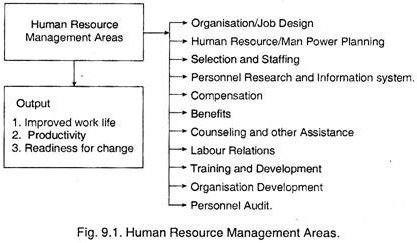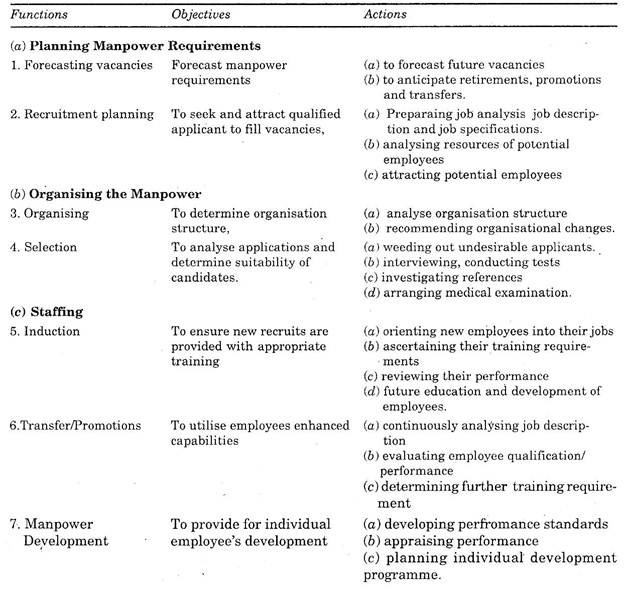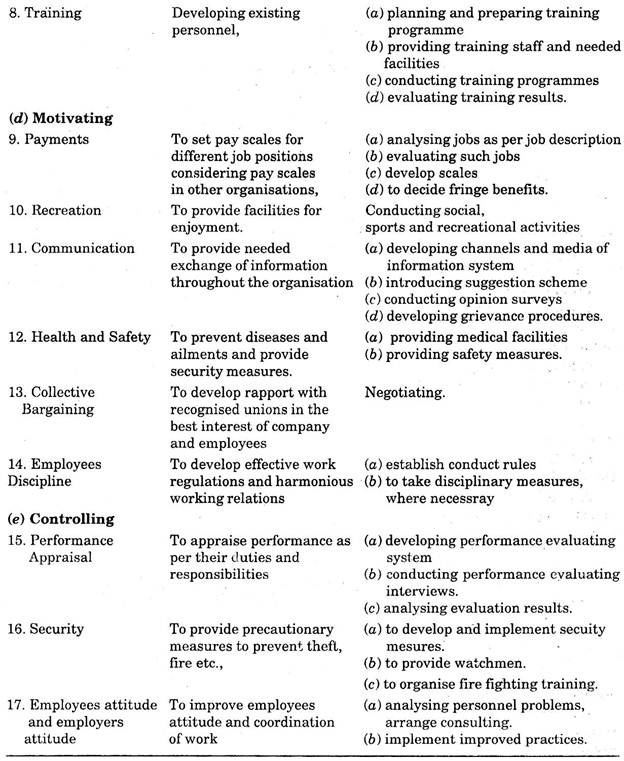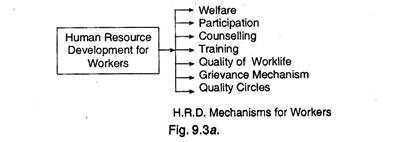After reading this article you will learn about:- 1. Meaning of Personnel Management 2. Functions and Objectives of Personnel Management 3. Principles.
Meaning of Personnel Management:
Personnel Management (staffing function of Management), also known as Human Resource Management. Personnel management is concerned with the proper use of human factors. Personnel management may be defined as that part of the management process, which is primarily concerned with the human constituents of an organisation.
Personnel management can also be defined as, that field of management which is concerned with the planning, organising, directing and controlling various operative functions of procurement, development, maintenance and utilisation of a labour force in such a way that objectives of company, those of personnel at all levels and those of community are achieved.
Meanings of some of the words used in this definition are explained below:
(i) Planning:
Planning means determination of personnel programme in advance.
(ii) Organising:
Organising means establishing an organisation by designing the structure of relationships among job, personnel and other physical factors to attain the company objectives.
(iii) Directing:
Directing means guiding the people to do the work effectively.
(iv) Controlling:
Controlling means regulating the activities in accordance with the plan.
(v) Procurement:
Procurement of labour means obtaining the proper kind of personnel in required quantity to achieve company goals.
(vi) Development:
Development of labour means increasing the skill of employees through training.
(vii) Maintenance:
Maintenance means improving the conditions (e.g., health, safety, welfare etc.,) and sustaining them.
Traditionally, personnel management system is concerned primarily with the five basic sub-systems, namely recruiting, placement training, compensation (pay, fringe benefits etc.) and maintenance.
Human Resource Management, as against these traditional functions should be considered as total system that interacts with the other major systems of the organisation purchasing, production, finance, marketing etc. The primary object of the human resource management programme is to serve these major systems.
Forecasting and planning the personnel needs of the organisation, maintaining an adequate and satisfactory workforce and controlling the personnel policies and programmes of the organisation are the major responsibilities of the human resource management.
In addition to different functions, in recent years following additional responsibilities are also expected from modern resource management system:
(i) Equal employment opportunity.
(ii) Occupational safety and health.
(iii) Employment retirement income security.
(iv) Upliftment of affected classes, a social responsibility.
Functions and Objectives of Personnel Management:
Personnel Management functions are generally divided into planning, organising, staffing, motivating and controlling aspects.
Major functions and objectives are given hereunder:
Principles of Personnel Management:
Principles of personnel management help the personnel managers to conduct and direct the policies in a proper way.
These principles are:
1. Principle of Maximum Personnel Development:
By this principle, the workers are developed to the maximum extent, so that their developed ability, cleverness, productivity and efficiency can be used for the firm’s objective.
2. Principle of Scientific Selection:
This principle enables to have a right person for the right job.
3. Principle of High Morale:
Ideal wage policy should be offered to the workers so that their morale becomes high and they work with interest.
4. Principle of Dignity of Labour:
The labour should feel proud of their work.
5. Principle of Team Spirit:
Team spirit must be developed in the workers. They should work collectively with collective responsibility, and should have sense of cooperation, unity and mutual trust.
6. Principle of Effective Communication:
There must be effective communication between the management and workers otherwise complex problems like mistrust, hatred and ill- will arise which in turn affects the production of the organisation.
7. Principle of Joint Management:
This creates responsibility in the labour with increasing mutual faith and friendship. This improves the labour relations.
8. Principle of Fair Reward:
Labour should be given proper compensation for the work. This develops industrial piece.
9. Principle of Effective Utilisation of Human Resources:
Personnel management should be developed for the effective use of the human resources. Proper training should be awarded to the personnel for their development.



